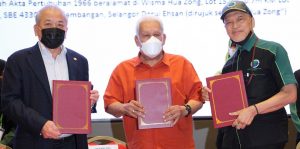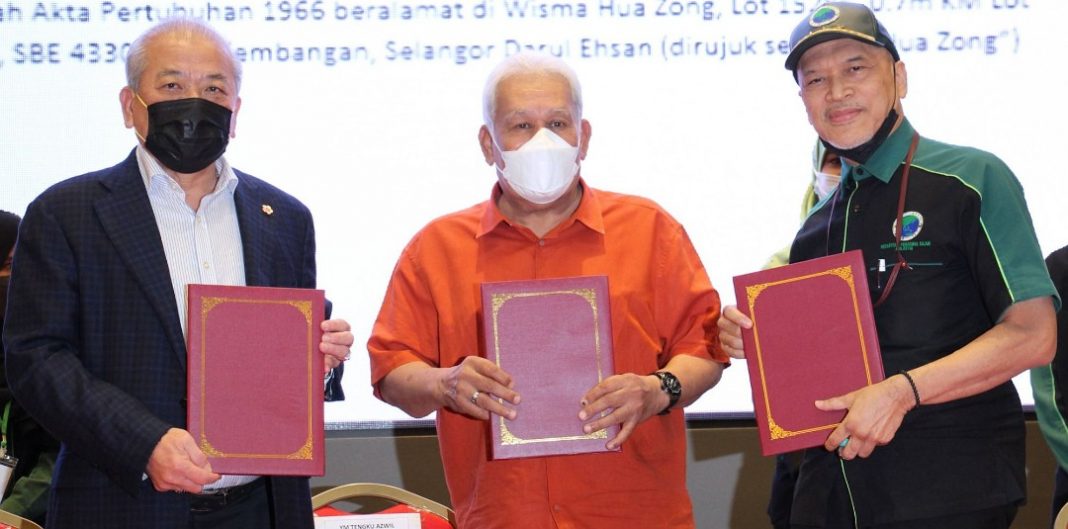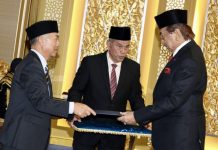KUALA LUMPUR: The Federation of Chinese Associations Malaysia (Huazong) has urged the Health Ministry to seek more feedback and proposals from various quarters, including policymakers from both sides of the divide, and the Parliament Special Select Committee on Health, Science and Innovation, before tabling the proposed amendments to the Prevention and Control of Infectious Diseases Act 1988 (Act 342) in Dewan Rakyat, in its current session.
Its President, Tan Sri T.C Goh asserted that it is important that the government and the Health Ministry must ensure that there’s a majority consensus in this matter, prior to proceeding with the proposed amendments to the said Act.
He noted that, the bill courted controversy as it proposed to increase the maximum compound to RM10,000 for individuals and RM1 million for corporate bodies that violate standard operating procedures. However government agencies are excluded from the bill which also covers organizations, recreational clubs, and associations registered under the Societies Act 1966 which will face a maximum compound of RM2 million for such violations. Although the Health Ministry subsequently reduced the proposed compound by half, following a strong objection from the public, it is nonetheless still considered too hefty by those who are affected.
Goh who is also President of the Federation of Chinese Associations Sabah (FCAS) urged this while speaking at the memorandum of understanding (MoU) signing ceremony between Huazong and Malaysian Muslim Consumers’ Association (PPIM), at Tan Sri Koo Yuen Kim Auditorium, in Wisma Huazong, on Sunday. The said programme aimed at urging the government to seriously review the proposed bill was also supported by 59 civil society organizations (CSO) in the country, including the Consumers Association of Penang (CAP).
He however clarified that Huazong and the people are not against the efforts and measures taken by the government and the Health Ministry to better prevent and control infectious diseases, which include the proposed amendments to the Act 342 which is deemed outdated, especially amidst the persisting Covid-19 pandemic.
But, when the amendment bill was tabled for its first reading in Dewan Rakyat on Dec 14, it has drawn criticisms from various quarters including policymakers from both sides of the divide, and the CSOs due to the fact that the proposed penalties are just too harsh and unaffordable to both individuals and organizations.
Goh also expressed concern that the provision of too great a power to the relevant authorities to impose such hefty fines, on the offenders, may potentially lead to power abuse by some irresponsible enforcement officers. Besides this, there’s also a need for clearer jurisdictions under the proposed bill, in order to avoid overlapping of authority, confusion and unnecessary disputes between the enforcement agencies and the public, when enforcing the new laws later.
He said, the government should review the inclusion of the societies and organizations registered under the Societies Act 1966 in the proposed bill as, a vast majority of them, including Chinese organizations like Huazong and the various Chinese assembly halls, are non-profit civil society organizations and they certainly could not afford to pay such a hefty fines, be it RM2 million, or RM1 million, or RM50,000 for offences of violating the Covid-19 SOPs.
“We also propose the government to better define and separate corporate bodies and CSOs, and to spare the latter from such a hefty fine. Otherwise, it might compel many CSOs to go into ‘hibernation’ to avoid the risk of having to pay such a hefty fine,” he suggested.
He also opined that to be fair to all quarters, government departments and agencies should not be exempted from the proposed bill.
He also reiterated that the proposed increase of maximum compound to RM10,000 for individuals is too harsh, especially when compared to the cash aid of RM1,000 given to each affected family during the major flood which hit the country, recently, as well as the meager welfare aids and living allowances, in the region of few hundred ringgits, provided to the people during the Covid-19 pandemic. A vast majority of the ordinary Malaysians had to withdraw their own EPF savings to stay afloat.
“Hence, if the government were to proceed to impose such a heavy compound, can the people afford to pay?
“The relevant authority should not treat the SOP offenders the same as those who committed crimes as there’s a difference between the two,” he said.
Meanwhile, PPIM president Datuk Nadzim Johan disclosed that it has submitted an open letter to Dewan Rakyat Speaker Datuk Azhar Azizan Harun, demanding the latter to take serious note of the people’s legitimate concern and confusion over the proposed amendments to Act 342.
He also praised Huazong for standing alongside the people in this matter.
PPIM Advisor, Tunku Azwil Tunku Abdul Razak too opined that the proposed bill is unacceptable to many people as the proposed penalties are harsher than those of the criminal offences.
He also hoped that more NGOs would come forward to join in the campaign in urging both the government and policymakers to better understand the people’s concern over the proposed bill.-pr/BNN







